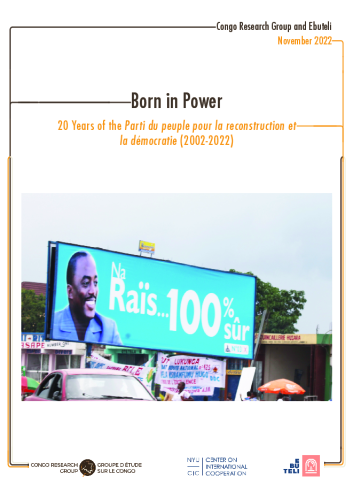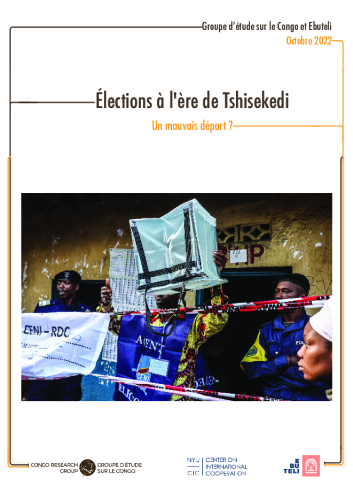Political parties have a major role in building democracy. Thirty-two years after the end of the single party system, the Democratic Republic of Congo (DRC) has more than 600 political parties, including 37 political parties and groupings represented in the National Assembly during this legislature. However, multiparty democracy has produced few concrete results in the DRC. It has led to the fragmentation of the political space without improving the quality of political debate and offerings. Political parties have generally remained a means for their leaders to accumulate financial resources and distribute positions through patronage.
The Congo Research Group and Ebuteli (their research partner in the DRC) published two reports on the two most important political parties of the last decade in the DRC: Born to Power: 20 Years of the People’s Party for Reconstruction and Democracy (2002-2022) and UDPS, yoka base! – The difficult quest for an inverted pyramid structure. These two reports review the history of these political organizations and focus on the accountability mechanisms within these two major parties. They expose the structural flaws in these political organizations.
These reports point to the lack of accountability to the grassroots within the People’s Party for Reconstruction and Democracy (PPRD) and UDPS, demonstrating how this hinders internal democracy and the ability of members to hold their leaders accountable in these parties.
In its 20 years of existence, the PPRD, for example, has placed less emphasis on its ideology. Its initiator, former President Joseph Kabila, appears to be the final arbiter of all important party decisions. Also, the formal structures of the PPRD are subject to informal power groups.
“Being a party born in power, and around Joseph Kabila, the PPRD has always struggled to find an existence outside its initiator. So today, without power and seemingly without strong ideological ties, the former president’s party seems to be losing its importance on the Congolese political scene,” says Joshua Walker, lead author of one of the reports.
In its evolution from the struggle for democracy to the conquest of power, the UDPS has not fared much better. Numerous reforms within the party have often led to the weakening of internal control mechanisms, undermining the ideal of governance with broad-based power.
“This report shows how the various reforms of the UDPS have transformed the party into a true party of cadres and how Étienne Tshisekedi has become the moral authority of the UDPS,” confirms Fred Bauma, the other lead author of the reports.
Ebuteli and the GEC recommend that these two parties, the PPRD and the UDPS, like all other Congolese political parties, empower internal institutions that can make leaders more accountable to their supporters and voters. These two major parties should also develop clear and realistic political programs. Also, a modification of the electoral law should be considered to reduce the number of parties. Finally, there is a need to effectively enforce the law on party financing to reduce the dependence of political parties on unaccountable elites.
Download the full report: UDPS, yoka base!
- French
- English
Download Born in Power
- English


